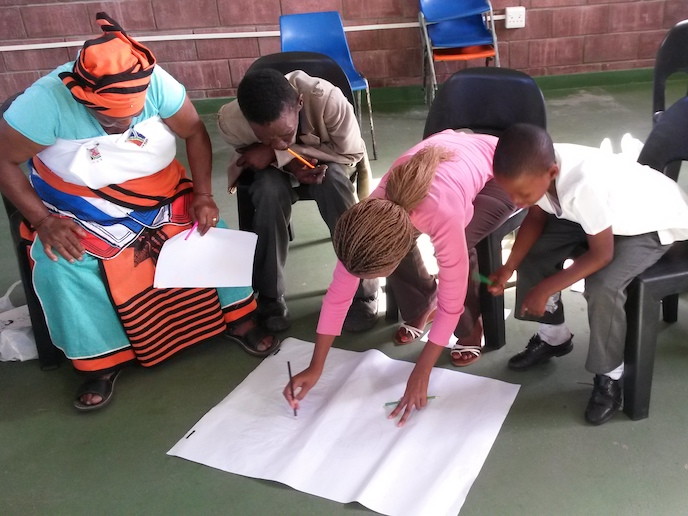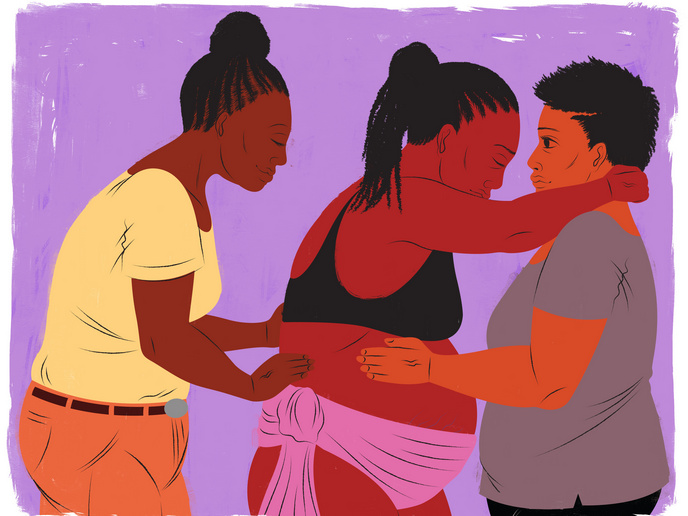Researchers and families from poorest province in South Africa work together on internationally recognised parenting programme
“The one thing I have found is that everyone, everywhere, struggles with bringing up teenagers. In all our talks – from Washington DC to South Sudan to India – people say how much this kind of programme is needed. And our rural African study sites were no different,” explains project coordinator Dr Lucie Cluver. PACCASA was able to use the first Randomised Controlled Trial (RCT) of a parenting programme for adolescents in any low- or middle-income country. The pragmatic trial applied their interventions in a real-world setting, rather than in the controlled environment usually applied, and used a low-technology approach to process evaluation. The cluster trial (2015-2016) included 40 rural and urban settlements and involved 1 104 families, with only a 4 % drop-out rate over 18 months. The intervention was significantly associated with lower abuse and corporal punishment. “We saw improved positive parenting involvement and better supervision. There were lower rates of adult and child substance use and reduced parental stress and depression. Parents were also less likely to endorse corporal punishment,” says Prof. Cluver. Researchers also saw improvements in financial management and economic welfare: families were less likely to run out of food at the end of the month. But how willing were local communities to participate? In the pilot testing stages, the team discovered that the programme they were designing was being spread around the communities. Families were setting up their own groups to teach others in their villages, local pastors were giving sessions from the manual as sermons, and school principals were using the programme for their weekly assemblies. “The programme wasn’t about changing norms, but rather about supporting families to develop shared skills that allowed them to have the happier relationships that they wanted.” Researchers kept the motto ‘Nothing about us without us’ firmly in mind throughout their work as they set about their four-stage process of development. All the testing was undertaken in South Africa’s poorest province – the Eastern Cape. First, the researchers talked with adolescents and their families, conducted systematic reviews and gained input from 50 experts in the field. This fed into the first draft of the Parenting for Lifelong Health programme. They then fine-tuned their work with the input of 60 participants and, having done so, conducted a larger pre-post-test with 240 participants. Finally, they used in-depth qualitative research with families and communities to develop the third draft of the programme. “We used pragmatic trial methods – which means that the programme was delivered as it would be in the real world – by local community members, in village halls or under trees, and with no exclusion of participants. This meant that our partners in government and NGOs could have confidence that the programme would work when delivered in Africa.” PACCASA worked closely with high-level colleagues based at international agencies, such as WHO, UNICEF and USAID – gaining their insights on intervention design and dissemination strategies to enhance relevance, uptake and scalability. “This approach to research is novel as it challenges the traditional separations that we commonly see between scientific research, policy formation and local community responses to social problems.” The collaborations’ success is evidenced by the massive local and international scale-up of the parenting programme, significant social impact of the study, and ongoing partnerships. The child and adolescent versions of the programme are now freely available on the WHO and UNICEF websites. To date, this study has resulted in 45 peer-reviewed publications as well as a research toolkit on the UNICEF website. Findings were published in the British Medical Journal Global Health and Journal of Development Economics (Cluver et al. 2018, Steinert et al. 2018), and a cost-effectiveness analysis showed total cost savings of EUR 1 902 per case of abuse (Redfern et al. 2019).
Keywords
PACCASA, child abuse prevention, pragmatic trial methods, South Africa, positive parenting, happier relationships, families







